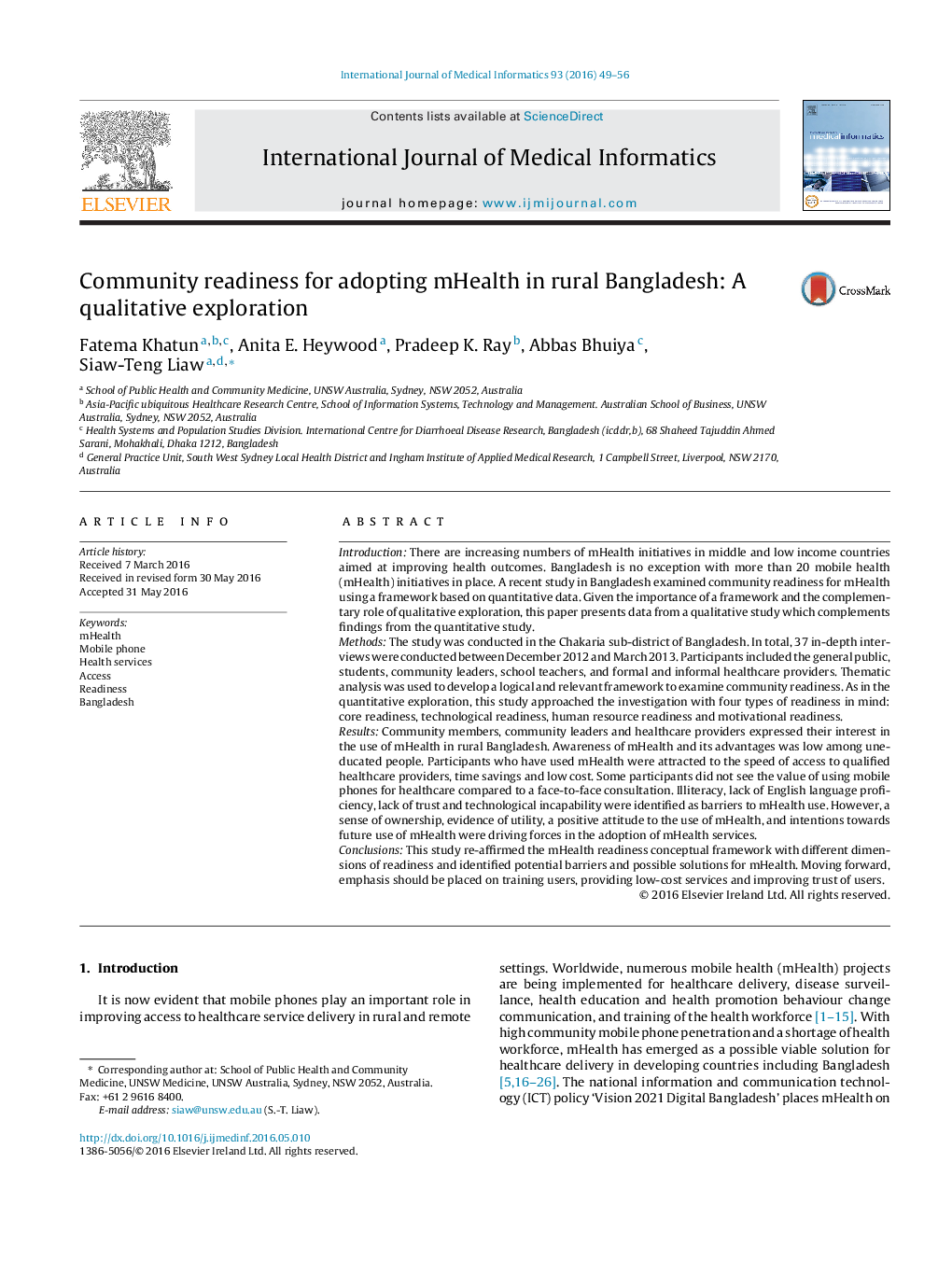| کد مقاله | کد نشریه | سال انتشار | مقاله انگلیسی | نسخه تمام متن |
|---|---|---|---|---|
| 516056 | 1449095 | 2016 | 8 صفحه PDF | دانلود رایگان |
• What this study added to our knowledge.
• This study re-affirms the concept of readiness by exploring the community peoples and healthcare providers’ perception of mHealth.
• Different barriers such as illiteracy, lack of English language proficiency, lack of trust and technological incapability were identified.
• A sense of ownership, evidence of utility, a positive attitude to the use of mHealth, and intentions towards future use of mHealth were driving forces in the adoption of mHealth services.
IntroductionThere are increasing numbers of mHealth initiatives in middle and low income countries aimed at improving health outcomes. Bangladesh is no exception with more than 20 mobile health (mHealth) initiatives in place. A recent study in Bangladesh examined community readiness for mHealth using a framework based on quantitative data. Given the importance of a framework and the complementary role of qualitative exploration, this paper presents data from a qualitative study which complements findings from the quantitative study.MethodsThe study was conducted in the Chakaria sub-district of Bangladesh. In total, 37 in-depth interviews were conducted between December 2012 and March 2013. Participants included the general public, students, community leaders, school teachers, and formal and informal healthcare providers. Thematic analysis was used to develop a logical and relevant framework to examine community readiness. As in the quantitative exploration, this study approached the investigation with four types of readiness in mind: core readiness, technological readiness, human resource readiness and motivational readiness.ResultsCommunity members, community leaders and healthcare providers expressed their interest in the use of mHealth in rural Bangladesh. Awareness of mHealth and its advantages was low among uneducated people. Participants who have used mHealth were attracted to the speed of access to qualified healthcare providers, time savings and low cost. Some participants did not see the value of using mobile phones for healthcare compared to a face-to-face consultation. Illiteracy, lack of English language proficiency, lack of trust and technological incapability were identified as barriers to mHealth use. However, a sense of ownership, evidence of utility, a positive attitude to the use of mHealth, and intentions towards future use of mHealth were driving forces in the adoption of mHealth services.ConclusionsThis study re-affirmed the mHealth readiness conceptual framework with different dimensions of readiness and identified potential barriers and possible solutions for mHealth. Moving forward, emphasis should be placed on training users, providing low-cost services and improving trust of users.
Journal: International Journal of Medical Informatics - Volume 93, September 2016, Pages 49–56
